If you were trying to raise some cash it used to be all about banks but that is no longer the case. They are not on the high street any more and they don’t lend to SMEs. That was the official word from the Bank of England in March. You are better off with Crowdfunding, P2P lending and alternative finance. Funding Circle has lent over £1.1bn and RateSetter £1.074bn and the latter boasts zero lost to investors to date.
Another trend that has appeared recently in the forecourt sector is that, if you appear to be a very good bet, you may attract private equity.
In February we announced that US private equity company Lone Star had acquired MRH, the biggest independent forecourt operator in the country.
At the other end of the spectrum, if you are looking for unsecured business loans or to borrow money against existing equipment or to finance the same, there are companies like Nationwide Corporate Finance (NCF) which claims: "We can fuel your funding." They offer a same-day decision, something you would never expect from a bank.
The on cost
There is strength in numbers so joining the PRA can save you both on cards and banking costs. Although as Gordon Balmer, commercial manager, says: "The RMI has a card-processing deal in place but, ironically, the PRA members don’t use it very much as most PRA members will have an arrangement on cards provided to them by their fuel supplier. However, where we do get lots of interest is around our banking offer. The PRA has arrangements with Santander, HSBC and RBS NatWest. Members and new-members who join the PRA have found the savings on costs associated with particularly cash banking to be very attractive."
Steve Coombes, PRA membership manager, points to Kumar Selvakumar who runs Black Horse Service Station in East London and whom we featured last September in our Service Centre column because he was looking for ways to save on his 95p for every £100 banked.
Turned out that Kumar belonged to the PRA via Certas and his bank charges have halved.
"Cash is 35% of all monies received by petrol retailers. Between £3-4K is the average that a retailer would pay in bank charges. The PRA can save them half that." He points to the current Barclays charge of 90p per £100 banked. "Ours go from as little as 20p per £100."
Cashing in
If you do have a lot of cash swilling around, you might consider saving on bank charges by recycling the money through an ATM. Tim Garner has a free-standing, self-fill YourCash ATM inside his 2,200sq ft Portsbridge Nisa in Portsmouth the store was judged Forecourt Trader of the Year in 2014. He says: "It’s a footfall generator. As a small indie you fight for every penny. We work hard at it. As it’s self-fill there is a certain amount of time involved but we make a reasonable amount from it. I get a transaction fee and reduced collections."
YourCash says it dispensed more than £3bn through its ATMs in 2015 and provided the following stats using data from LINK, Payments Council, ShopperVista and HiM:
¬ ATMs were used 3.16 billion times in the UK in 2015.
¬ £127.8bn was dispensed via ATMs in 2015; the average withdrawal was £67.
¬ ATMs currently supply 76% of cash to individuals.
¬ ATM use will increase to 86% by 2020.
¬ 75% of retail customers expect to find an ATM service in a convenience environment. Sixty per cent of them will go on to spend in store.
Cardtronics (best known as Cashzone and Bank Machine) has over 15,500 machines in the UK and globally is the largest ATM operator providing 190,000 retail ATMs in North America and Europe.
According to a survey Cashzone published in October 2015, cash is still king. The majority (53%) of consumers said their payment habits hadn’t changed despite the availability of new payment technologies. There were strong regional differences, with 29% of Londoners saying they use contactless more while only 16% in Scotland say so.
The company says its research also shows that ATMs drive loyalty, footfall and sales at UK forecourts. For 77% of shoppers at forecourts, a cash point on-site is an important service.
After buying petrol (which drove 56% of all visits to petrol forecourts), using the ATM was the second most frequently mentioned reason for visiting.
Cash machine users tend to visit their local petrol forecourts more frequently than non-users and 60% said they wouldn’t come back to the same forecourt if the cash machine was removed or was faulty.
Retailer view
John Stevenson, who has been running a Nisa forecourt in Oxbridge for 30 years, has two cash machines.
"We installed the first one 13-14 years ago and now have two running. I’ve noticed that it’s more common for people to use the cash point without buying petrol," he says. "Both of our machines are pretty much used all throughout the day. Our cash machines are both outside the store. Sometimes people use them without buying anything, but they will often come in and spend the money they’ve just withdrawn. Customers who buy petrol, for instance, frequently choose to pay in cash."
cashless convenience
Lee Jones, director of sales & business development, multi-channel services, Ingenico Group, says that forecourt traders want to combine very high levels of security with convenience when it comes to processing cashless payments.
"Striking the balance remains a crucial element for forecourts. Particular independents and franchises like customers coming into the store to buy coffee and other high-margin goods, whereas some large organisations want you on and off forecourts as quickly as possible. So, for some it is about speed and productivity, but for others it is about convenience and value-added services at the point of sale, regardless, the customer experience is the focus.
"Ingenico Group has developed Telium Tetra which allows value-added services to be seamlessly deployed in the payment value chain via HTML5 applications providing the opportunity for consumers to conveniently engage further at the point of sale while maintaining the speed of through-put."
Jones adds that contactless continues to rise in popularity and now that the limit has been raised from £20 to £30, retailers need to make sure they are prepared and ready to meet what is an increasing customer demand with one in eight card payments in 2015 being made via contactless in the UK.
"Ingenico Group supplies this market with the iPP350 a terminal which accepts every possible payment method including contactless and NFC to offer true convenience. This recently updated compact PIN-pad terminal was designed to meet the needs of this demanding retail environment and now meets the very latest PCI PTS V4 security standard."


















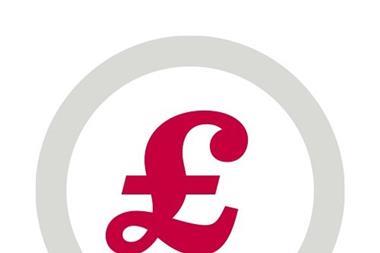
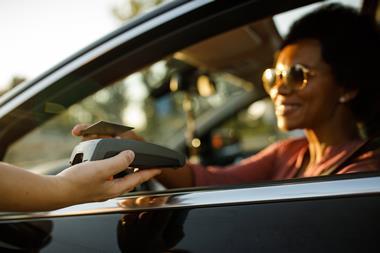
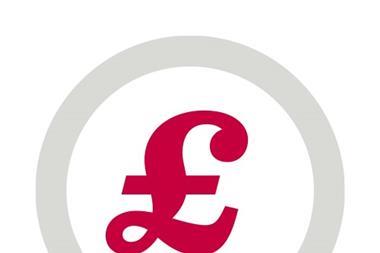
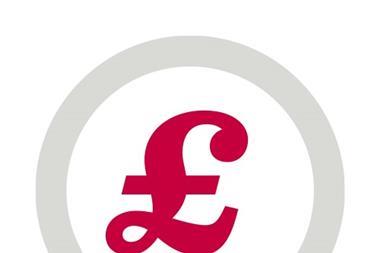
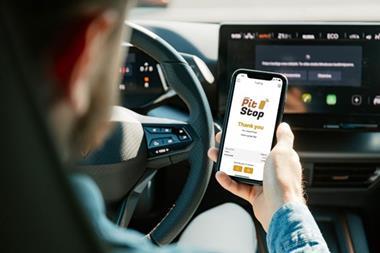
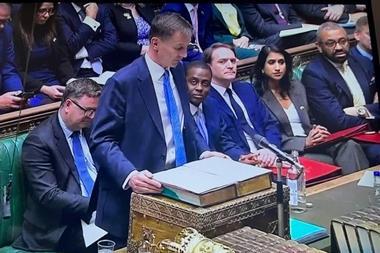
![VolumaticSurveySupportsCash_image[8159]](https://d1haa5elnw3u00.cloudfront.net/Pictures/380x253/3/8/9/261389_volumaticsurveysupportscash_image8159_640635.jpg)


No comments yet